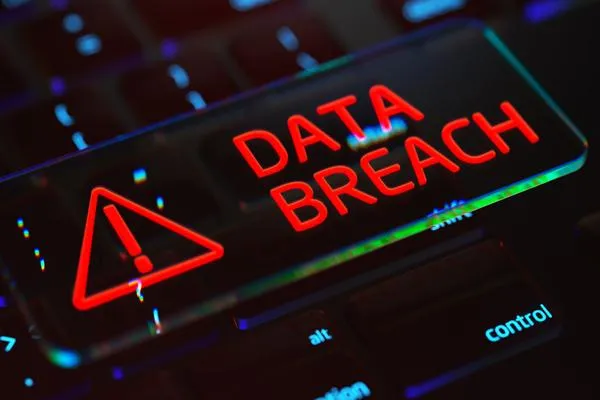
They Stole Billions of Passwords. Yours Was Probably One.
A record-breaking data breach just leaked over 16 billion email and password combinations from major platforms like Google, Facebook, PayPal, and Netflix. Known as the “Mother of All Breaches,” this cybersecurity incident combines decades of stolen credentials with newly harvested data from infostealer malware. If you’re still reusing passwords or skipping two-factor authentication, your digital identity is now at serious risk. In this post, cybersecurity expert Mike Wright, The Security Guru, explains what this breach means for individuals and businesses, and the exact steps you should take today to secure your accounts, stop credential stuffing, and prevent identity theft.
They Stole Billions of Passwords. Yours Was Probably One.
The largest credential breach in history just surfaced—and chances are, you’re in it. This breach, dubbed “The Mother of All Breaches,” includes more than 26 previously known data leaks plus fresh credentials scraped from info-stealing malware. It totals over 16 billion email and password combinations—many in plain text—linked to services like PayPal, Google, Facebook, and Netflix. If you’re reusing passwords or still skipping two-factor authentication, this should be your wake-up call. In today’s cybersecurity landscape, your email is the master key to your digital identity—and hackers now hold millions of them.
What Happened?
This mega breach didn’t just target one company. It compiled data from dozens of past attacks—along with new info harvested by infostealer malware infecting devices and browsers globally. The result? A hacker goldmine of 16 billion credentials available on the dark web. Victims include users of nearly every major online service, including Apple, LinkedIn, Dropbox, and countless others.
Some of this compromised data was stored in plain text, which is unacceptable and negligent. This breach isn’t a warning. It’s a full-blown emergency.
If you missed our breakdown of how attackers use stolen credentials to manipulate victims, read The Con Artist in Your Inbox next.
Why This Breach Is So Dangerous
Your email address is more than a login—it’s the key to everything else. Once compromised, it allows attackers to:
Reset passwords for other services
Bypass weak two-factor authentication (2FA)
Gain access to saved payment methods
Launch phishing campaigns from your account
Access private messages, business data, and sensitive documents
This breach gives cybercriminals the tools to rebuild your entire digital life—and take it over. Many hackers use Phishing-as-a-Service to launch convincing email scams using breached data. Learn more in this blog post: Phishing-as-a-Service, The Amazon Prime of Cybercrime
What To Do Right Now
1. Change Your Email and Banking Passwords Immediately
Start with your email, financial apps, and any platform with sensitive data or payment access. Use long, unique passwords for each.
2. Use a Password Manager
If you’re managing passwords manually, you’re doing it wrong. Tools like Bitwarden or 1Password create and store complex credentials securely.
3. Enable App-Based 2FA
Don’t rely on SMS alone. Use Google Authenticator, Authy, or similar tools to lock down your logins.
4. Check If You’ve Been Breached
Use HaveIBeenPwned.com to search your email and see if it appears in any recent leaks.
5. Review Recent Activity
Scan your inboxes, account settings, and login histories for anything out of the ordinary. If something feels off, it probably is.
For a refresher on how hackers exploit breaches, revisit our article: Why Cybersecurity Is About People, Not Just Passwords.
Breaches Are the New Normal—So Should Your Defenses Be
This isn’t going to be the last breach. It’s not even the worst one we’ll see. But it’s a reminder that waiting for “something bad to happen” is a terrible strategy. Your cybersecurity plan should assume that your credentials are already out there—and build defense layers accordingly.
AI is now making cybercriminals faster and harder to stop than ever beofre. Here's what that means for your business.
Need to boost your defenses without overspending? These budget-friendly cybersecurity tips will help!
If you run a business and don’t have a security awareness training in place, let’s fix that before your employees get phished and your systems get hijacked.
Need Help Locking Down Your Accounts or Protecting Your Business from Breaches Like This?
Schedule a call with Mike Wright, The Security Guru, and get expert cybersecurity guidance that actually works.
Contact Mike Now
